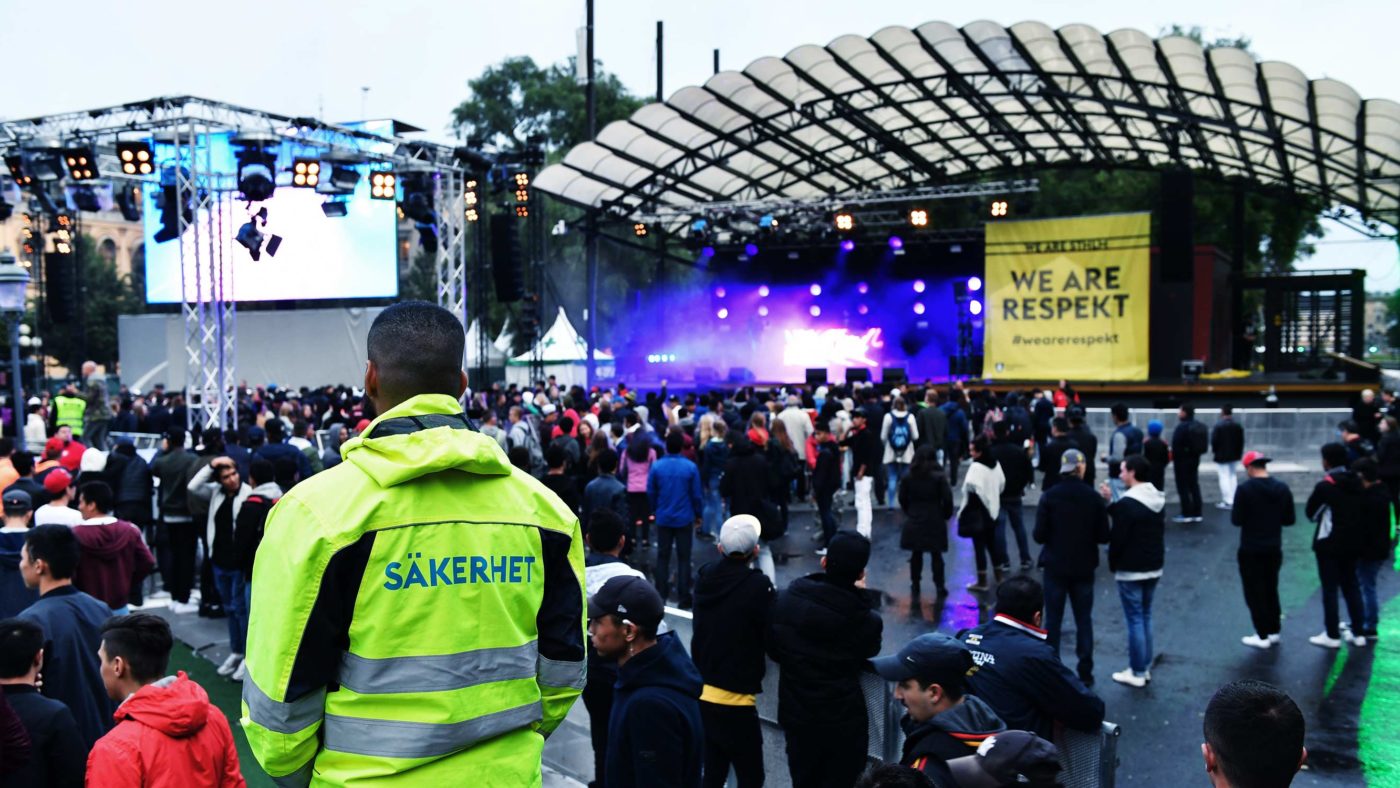We should have man-free zones in schools, parks, youth activity centers and other places where many people gather. This is the suggestion put forward by rapper Linda Pira to Göteborgs-Posten, the daily paper of Sweden’s second largest city Gothenburg. While the idea might seem extreme, it is not entirely out of place in the current debate being raged in Sweden. A music festival in Gothenburg has already been toying with the idea of zones where men are banned.
The simple reason is that a sad development is occurring in Sweden, where sexual assaults have become common-place. As the first day of the music festival We Are Sthlm kicked off last Tuesday, seven reports of sexual harassments were made. This is quite troubling, given that security measures have been ramped up in Swedish festivals.
Currently a massive debate is raging in Sweden about the causes of such assaults. Is recent immigration waves to blame for increased sexual assaults, or has a feminist discussion climate finally made it acceptable to report sexual harassment?
What is clear is that the Swedish law authorities are not able to stop the assaults. The Local has reported:
“Swedish police were heavily criticized for not releasing details on the total 36 reports of sexual assault and two rape allegations filed after the festivals in 2014 and 2015. Many of the alleged perpetrators were young Afghan refugees, newspaper Dagens Nyheter reported when it broke the story in January, as police fielded accusations of burying the reports to avoid stoking anti-immigrant sentiment.”
The response? The police started a campaign in which bracelets with the message Policeavspärrat #tafsainte (Police cordon #dontgrope) were handed out. The campaign has upset many in Sweden, as well as abroad, who doubt that those willing to commit sexual assaults care about the message printed on small plastic bracelets. Lisen Andréasson Florman, who leads a voluntary group with the goal of creating safer environment at festivals, has explained that little is done to stop the assaults. She herself, while wearing work outfit, was surrounded by three men who acted in a far from acceptable way. “And the three men had those don’t grope bracelets on them”, Lisen has said, continuing to explain “it was so surreal”.
The odd behavior of Swedish police doesn’t end there. In a recent interview with Swedish public radio the National Police Commissioner Dan Eliasson was told that over 100 charges of sexual harassments and rapes had been made under seven music festivals during the summer in Sweden, despite the #dontgrope campaign. A journalist asked (my translation to English) “how many suspected gropers have you been able to catch and bring to justice so far?” “Well, it is few, far too few”, Eliasson said, before being told that the correct number was just one single individual.
The National Police Commissioner made it worse by shifting the burden to the journalist: “If you could tell me how we could work in a smarter way to find out how one gropes…” Eliasson started saying, before being interrupted by the chuckling journalist, who explained that this wasn’t his job to figure out, but that of Eliasson.
This bizarre interview captures part of the reason for why Sweden, and to a certain degree other Northern European countries, are unable to meet social tension. A focus on public relations has crowded out traditional police work. Theoretical debates have taken the place of firm action. While the strive to focus more on dialogue than violence is an admirable action by the police force, it has lead to an odd situation – with the head of police acting in a way that makes Chief Wiggum from the Simpsons look like a star.
Dr. Sanandaji’s latest book, ‘Debunking Utopia – Exposing they myth of Nordic socialism’, is published on the 16th August by WND books, RRP £12.97.


